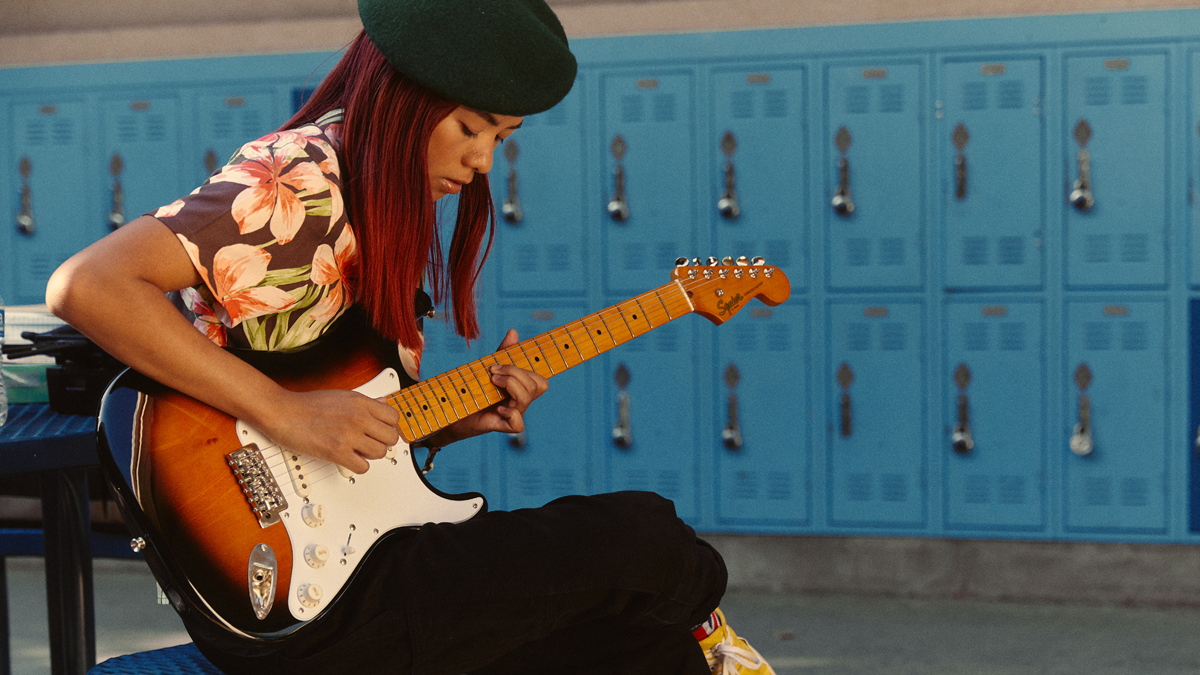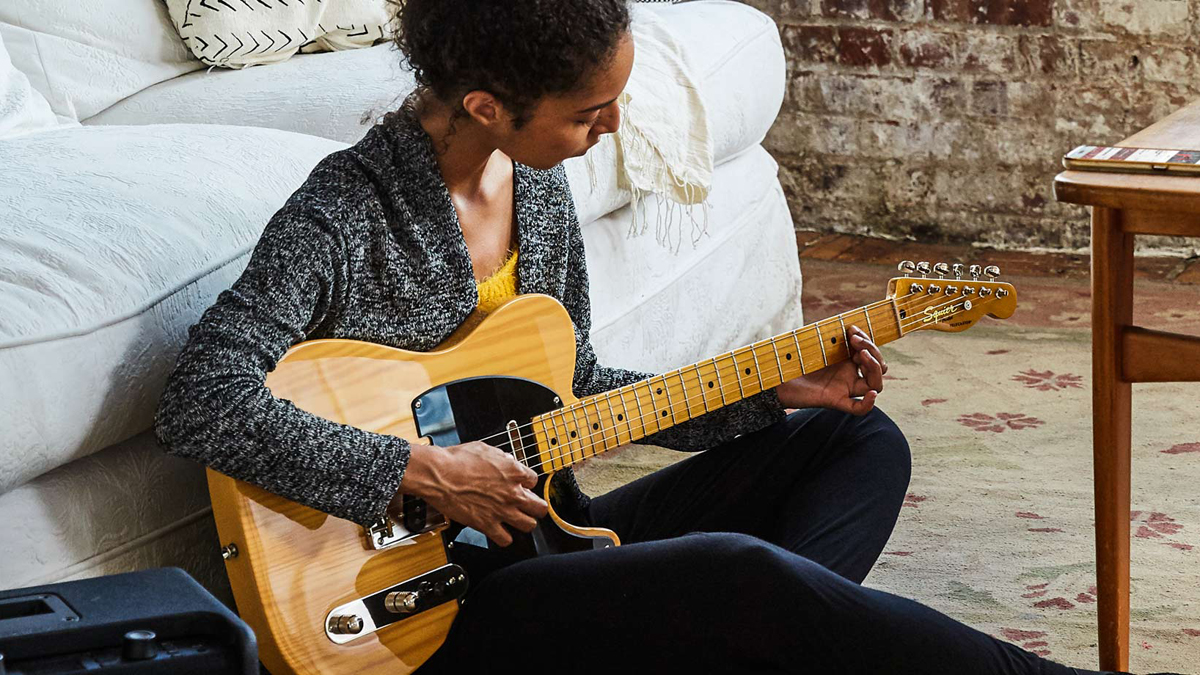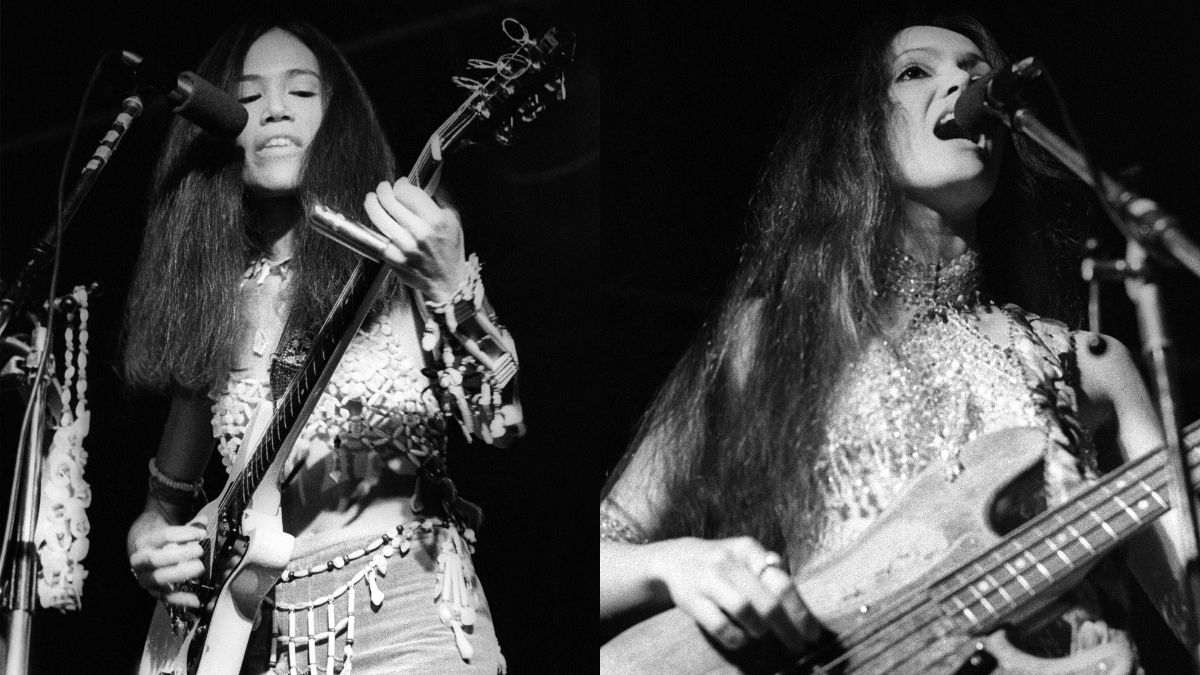How gender equality in the guitar industry has improved – and what more needs to be done
Progress has been made, but as Fender and Reverb explain, steps need to be taken to break down the barriers female and non-binary players face in the guitar world

All the latest guitar news, interviews, lessons, reviews, deals and more, direct to your inbox!
You are now subscribed
Your newsletter sign-up was successful
The exclusion of women in the guitar industry has not gone unnoticed – more recently, it’s an issue that companies and ambassadors have worked tirelessly to address.
The true founders of guitar music were not just men. Trailblazers such as Sister Rosetta Tharpe and Mary Kaye birthed and molded rock guitar in the '30s and '40s – today, non-male players are helping find new ways to improve it. After a long, bleak period of forgotten female legends, ignorance is fizzling out: guitarists want representation.
The cultural lineage from Hendrix to St. Vincent proves a level of progression that wasn’t there before. In a nutshell, women are role models to young players. That’s a huge milestone in our endeavor to reach equality.
Brands and influencers have been putting in the legwork. Fender has done a lot of research into diversity and inclusion – of all aspiring guitarists in 2018, the company found at least 50 percent were women, and there are countless distinctive players who are encouraging them to pick up the instrument.
Chrissie Hynde has been rocking out for the past 40 years, Megan and Rebecca Lovell are revitalizing roots-rock as Larkin Poe and Nita Strauss recently joined Demi Lovato’s new all-female rock band. Hopefully, the rock ‘n’ roll ‘boys club’ mentality can be left in the past.
Inclusivity and support is at the heart of Fender’s main targets, says Matt Watts, Senior Vice President of Marketing: “We aim to serve players at every stage in their career, and that includes everything from onboarding a new player – nurturing them as they begin their journey – to equipping seasoned players and artists with the best gear and content around to support their needs.
“It’s more important than anything to understand our consumers,” he adds. “That means listening to them and ensuring we’re speaking to them in a way that resonates, while also representing them in our marketing.”
All the latest guitar news, interviews, lessons, reviews, deals and more, direct to your inbox!
Fender has a range of signature artists. Several are female, who have had the opportunity to shine brighter with their own signature guitar. Fender releases from the past couple of decades include the Bonnie Raitt Stratocaster in 2001, Avril Lavigne Squier Telecaster in 2012 and the Chrome Glow Stratocaster for Grammy Award-winning R&B artist H.E.R. in 2020. Non-binary player Tash Sultana received their own signature model that same year.

Justin Norvell, Executive Vice President of Product at Fender, notes that signature models enhance product innovation, and help the instrument evolve to meet the needs of all players.
“Signature models are interesting, because they can speak to generational demographics – whether it’s Jimi Hendrix or something from the '60s that’s classic rock to something very today,” he explains. “It can speak to genre. So, people see a blues artist and think that’s their thing, or they see a punk rock artist and get interested in the product.
“It also speaks to gender in the same way. It’s all of these things – ethnic diversity, too – because music is such a personal thing: an expression of oneself.”
The guitar is continually evolving to become younger and more diverse. 45 percent of guitars sold by Fender go to first-time players – half of them are female.
“We want to make sure we’re catering to as many players as possible,” Watts continues. “We acknowledge that when players see themselves in our marketing, it inspires them to keep playing.”
Norvell echoes, “If you look back through our marketing campaign, even over the last five years or so, you’ll see we’ve featured at least one female artist in every campaign that we’ve run.”
We don’t box different people – they’re guitar players. They’re musicians. And it’s the same thing that drives everybody equally
Justin Norvell
“We feature a lot of women in our marketing, and we don’t box different people – they’re guitar players," he adds. “They’re musicians. And it’s the same thing that drives everybody equally.”
And it’s not just guitar manufacturers who are working to enact change. Kristen Cho, Chief Marketing Officer of online gear retailer Reverb echoes these sentiments, outlining the online retail giant’s mission on inclusivity.
“At Reverb, we want music-makers from all backgrounds and all levels to feel welcome,” Cho says. “When we launched nearly 10 years ago, the vision was to create an online community where anyone in the world could buy and sell music gear easily and affordably.
“We quickly realized that to truly fulfill that vision, we needed to be intentional about fostering that type of inclusive community. We dug in, examining our brand, the content we produced and our social media channels. We also spent a lot of time listening to diverse voices in the musical instruments community, the musician community and our team.
“I’m incredibly proud of the early Reverbers who were champions for diversity and created a welcoming community for all music-makers everywhere.”
Cho continued to develop the Reverb brand on one principle: that people are much more likely to engage with a brand or a community when they see themselves represented, whether that’s at a guitar store, on an e-commerce website, in a YouTube video or in an online comments section.
As such, Reverb makes sure to represent players equally in its content, covering everything from interviews and educational deep dives to gear demos. It even includes partnerships, such as Reverb's collaboration with the She Rocks Awards, which recognizes female trailblazers in the industry who sometimes get ignored by the wider media.
It means performers get recognized for personal achievements – something particularly beneficial to young girls looking up to the industry. Sarah Lipstate, for example, was amplified for her cinematic pedalboard, while Laura Jane Grace’s extensive Rickenbacker collection was also put under the spotlight.
There ought to be tangible changes from the efforts put in by industry giants. For such a large amount of thought and effort that goes into eliminating sexism, are we seeing much difference?
“Building and supporting an inclusive community is an ongoing journey,” continues Cho. “So far, the response from our buyers and sellers has been overwhelmingly positive. I love hearing stories from music-makers who feel seen, safe and supported when they buy, sell and geek out about music gear on Reverb.”
You can see a new attitude creeping through online, too, particularly on platforms such as TikTok. A noteworthy example is Reverb's #SheSetTheTone TikTok challenge, which was launched during Women’s History Month.
“The challenge featured musical creators from around the world, each highlighting a woman in music who inspired them,” recalls Cho. “From Mia Madden talking about the first time she heard St. Vincent’s Cruel, to Clover-Lynn celebrating Mother Maybelle Carter’s influence on country and bluegrass music, the challenge celebrated how the increasing presence of women on stage and throughout the industry has driven more women to continue to pick up instruments.”
Although change isn’t instant, there are contributing factors that help to slowly improve representation.
Players like H.E.R and Japanese Breakfast are pushing their respective art forward as guitar players. They’re inviting new players into the space, which is exciting
Matt Watts
“Players like H.E.R and Japanese Breakfast – they’re all pushing their respective genres and art forward as guitar players and bass players,” notes Watts. “But they’re all inviting new players into the space and making it safe, which is exciting.
“Ultimately, industry leaders need to hold themselves accountable to make a difference,” he goes on to say. “That means pushing themselves to showcase gender parity and diversity in marketing, products and whoever they work with. And that’s how things begin to look up.”
“A lot of niche things have that exclusivity to them,” continues Norvell. “Like, it’s hard to get in the club if you’re not in the club. But in the last decade or so, we’ve really tried to make sure that there’s tons of genres, no matter what the dominant one is, and there are tons of different types of players, too.
“You really want to look at the brand you’re seeing and say, ‘Is this me?’ And if you don’t see anything like yourself, then you’re going to think it’s not for you.”
Fender has also introduced an app – Fender Play – to help teach people guitar from all backgrounds in an accessible way, aiming to reduce the friction for new players entering the industry.

Sometimes, particularly with social media, technology exacerbates any problems with equality and representation. Trolls see an opportunity to bully, and the world seems more hostile than it is.
“It pains me, but unfortunately you still hear stories from women who were asked if they were looking for a gift for boyfriend or husband while shopping in a guitar store,” says Cho. “Preconceived notions of what a guitarist should look like still exist, but destinations like Reverb can go a long way in creating friendly and accessible customer experiences – both for shopping and learning.”
Reverb works hard to feature female and non-binary guitarists in unboxing videos and other content in an effort to show that everyone can interact with the guitar-playing community.
It has a series online called Tones of the Unknown, partnered with She Shreds Media. “We featured female and non-binary guitarists unboxing different guitar pedals and using them to create different soundscapes,” explains Cho. “Content like this is intended to not only be informative and accessible, but also meant to be a fun way for music-makers to learn more about gear and build confidence as they experiment in their music-making, too.”
Fender knows how much guitar evolves and changes – it’s why it remains one of the most dominant instruments in music. Alongside innovation in pedals and plugins, its applications are limitless, ranging from shredding and textural solos to effects-laden background ambiance.
“That ability – which makes the guitar continue to evolve – we embrace,” notes Norvell. “We call it a sonic paintbrush, because if it’s in someone’s hands, they can do whatever they want with it.”
It’s a gift, Fender says, that belongs to no single gender. So, where are we headed with this new attitude to accompany inclusivity? Do we still have a long way to go until the field is level?

“As a community, we are definitely making progress on inclusivity,” observes Cho. “And yet, we still have a long way to go. Real, meaningful change takes time, and brands have a responsibility to be a driving force for inclusivity.”
Similarly, Norvell says, “I think the best we can do is always evolve and improve ourselves and lead by example. Us, along with other brands, are trying our best to be so much more inclusive, and I think it’s a thing that happens in concentric circles. It doesn’t happen overnight, but it’s doing a really good job so far.
“Everything’s always better when it’s open,” he concludes. “Positive. Inclusive. More always comes of it. And the more we stick with trying to make the guitar less daunting – demystifying the journey of navigating the instrument and figuring out your own path – the more evolution in the market we’ll have.”
